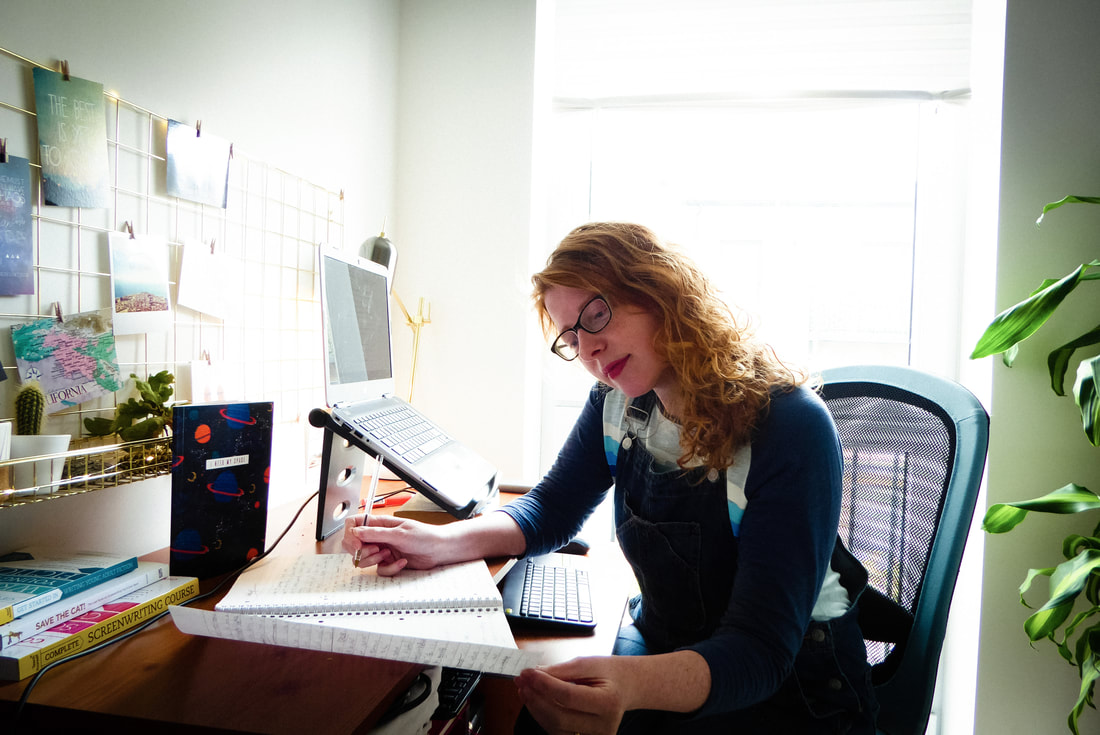|
The second part in this series about disabled and low-income access to writer development opportunities was originally published at WOW_CON, the online writing conference run by Write Mentor. It's with their permission that I'm sharing it here. We’ve seen writer development opportunities becoming more accessible in the last year or so, due to increasing awareness of the barriers faced by disabled and low-income writers. It comes down to budget and planning: plan to provide free or low-cost access to opportunities and events – then find the budget for it. There’s thankfully been moves at an organisational level to address the inequality that’s so often been swept under the carpet. Take the Science-Fiction and Fantasy Festival, Cymera, for example, who provided low-cost tickets to all their events and hosted dozens of free workshops, all through top-level funding (thanks to Creative Scotland and Napier University). The Edinburgh International Book Festival has just launched a Pay What You Can incentive for the 2019 festival, listing twenty events which you can pay anywhere between £0 and £25 for (okay so 2.5% of events isn’t that much, but it’s a great start). Although the old trope of paying what you ‘genuinely can’ perhaps isn’t necessary. They are doing much more to engage with communities in and around Edinburgh year-round too, with their Outreach: On the Road programme, which brings workshops, long-term projects, and more, to community groups including the likes of mental health and young-carer groups, who cannot afford to pay to access events at the main festival. Residencies and retreats are also providing wider access: Cove Park run two fully-funded residencies: for emerging writers, and creatives in the early stages of their careers; and Moniack Mhor have a rolling bursary (they will fund up to £150 towards the cost of a course); there’s also Arvon, who have three new bursaries funding full course fees. We’re seeing online resources offering free courses, masterclasses and retreats: such as Write Mentor, and Writers’ HQ who run a highly visible bursary scheme to open up access to their one-day retreats and bite-size online courses. Such passion-led organisations are making a huge, conscious effort to bring equal opportunity to those who can’t afford the regular fees. Write Mentor’s organiser, Stuart, is all-too aware of the challenges faced by those who can’t afford to pay for access and he’s striving to make the content and opportunities accessible to everyone, by offering tiered access. This includes free entry to the Children’s Novel Award, Write Mentor programme, giveaways for WOW_CON, and scholarships for longer courses. Anything with a price-tag is payable in instalments up to six months now, too. Author and journalist, Kerry Hudson, hosted the inaugural Breakthrough Festival this year, supporting low-income writers from across the UK in developing their craft. The festival offered a travel bursary, free lunches and tea-breaks, zero ticket cost, and writers who spoke or taught workshops did so for no payment, volunteering their time – and compassion. Twitter UK even offered up their London offices for the day. It all comes back to community. More funding for the arts is, of course, what would make the biggest impact. It’s a simple equation: Funding = access. The government needs to place more value on the creative sector. Creative Scotland only get so much funding to allocate and literature is just one part of a much bigger picture of the arts in Scotland. Much of their literature funding goes to the Scottish Book Trust, who provide online development tools for writers and mentoring to the winners of the New Writers Awards. However, more could arguably be done to provide substantial development tools to disabled and low-income writers. It would be brilliant to see organisations such as this specifically providing free mentoring. Free editing and manuscript assessment, such as that provided by the Free Reads Scheme run by Arts Council England, would be hugely beneficial too. These could all be done over email and Skype, in order to bring the opportunity directly to the person, should they be unable to travel. When I met with the Scottish Book Trust to discuss the steps they are taking to improve access they told me they were working on it all the time, and it’s simply the case that it takes time to get things off the ground and to secure funding. They listened to the suggestions I made and were incredibly supportive and encouraging, and more importantly, keen to keep the dialogue open.
But what we need to see much more of, across the board, is tiered access, payment plans and multiple sponsored or bursary-funded places. Providing a travel bursary or live-streaming or recording events and workshops also opens access to those who can’t be there. Other things to think about include subtitles for any attendees who are deaf, or hard of hearing, and a sign-language interpreter if requested. A wheelchair accessible venue could also be prioritised when planning an event. Signage is a big issue and many organisers could improve here by clearly signposting where to go if you’re disabled, whether it’s to relevant information on a website, or to the correct room. Speaking as someone whose disabilities include cognitive-fog, anxiety and dissociation, it’s easy to feel overwhelmed. A designated quiet space, can help with this. It is possible. Even in a capitalist world, it is more than possible to provide access to all, and still have pennies in the pot at the end of the day. For too long, the poor and disabled have been used as scapegoats and deemed ‘scroungers’. It’s in our hands to change the narrative – by proclaiming our support for them. Small steps create big change. Every single new point of access opens the gate a little wider and every fair payment paves the path for the writers bravely following in our footsteps. It’s not only fledgling diversity we risk losing: but the world of literature as we know it – and all its creators – if we don’t buckle-up and do something about it, now. All we are asking is to be seen, heard and valued too. How can writers, help? Ask the organisation hosting you if they can provide low-cost or sponsored spots – half the battle is raising awareness. If you don’t have an organisation behind you, and it’s affordable, you could offer a free or low-cost spot in workshops or on courses, and discounted service rates – you can ask those who need it to get in touch directly to organise this at your discretion. Some writers ask other paying attendees if they would like to donate a small amount towards a free spot for a low-income writer: you’ll be surprised at how many people will opt to do so, given the opportunity (just look at Writers’ HQ successful bursary scheme).
1 Comment
Leave a Reply. |
My latest writings, and thoughts on disability, mental health and young-adult lit. Archives
September 2022
|


 RSS Feed
RSS Feed